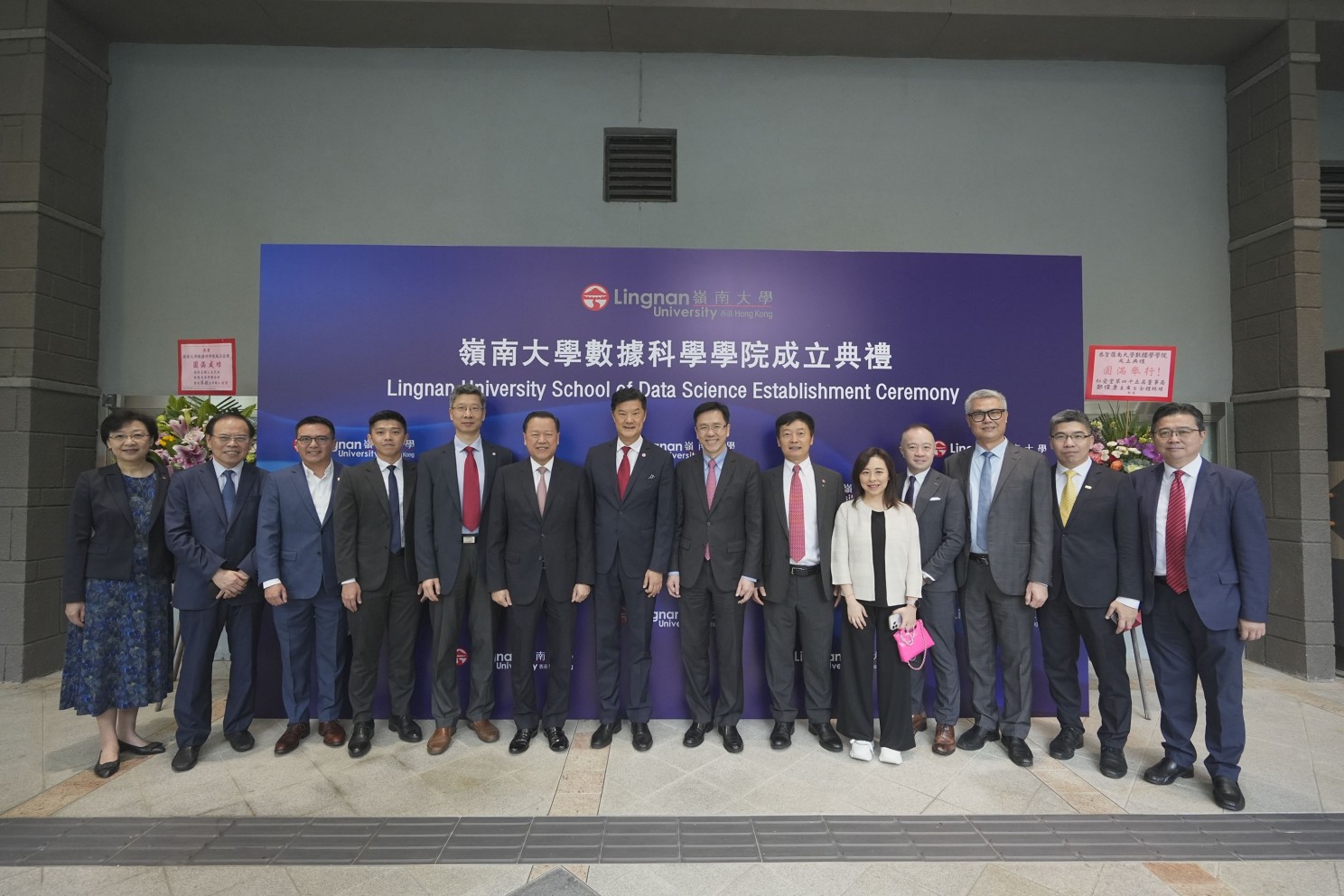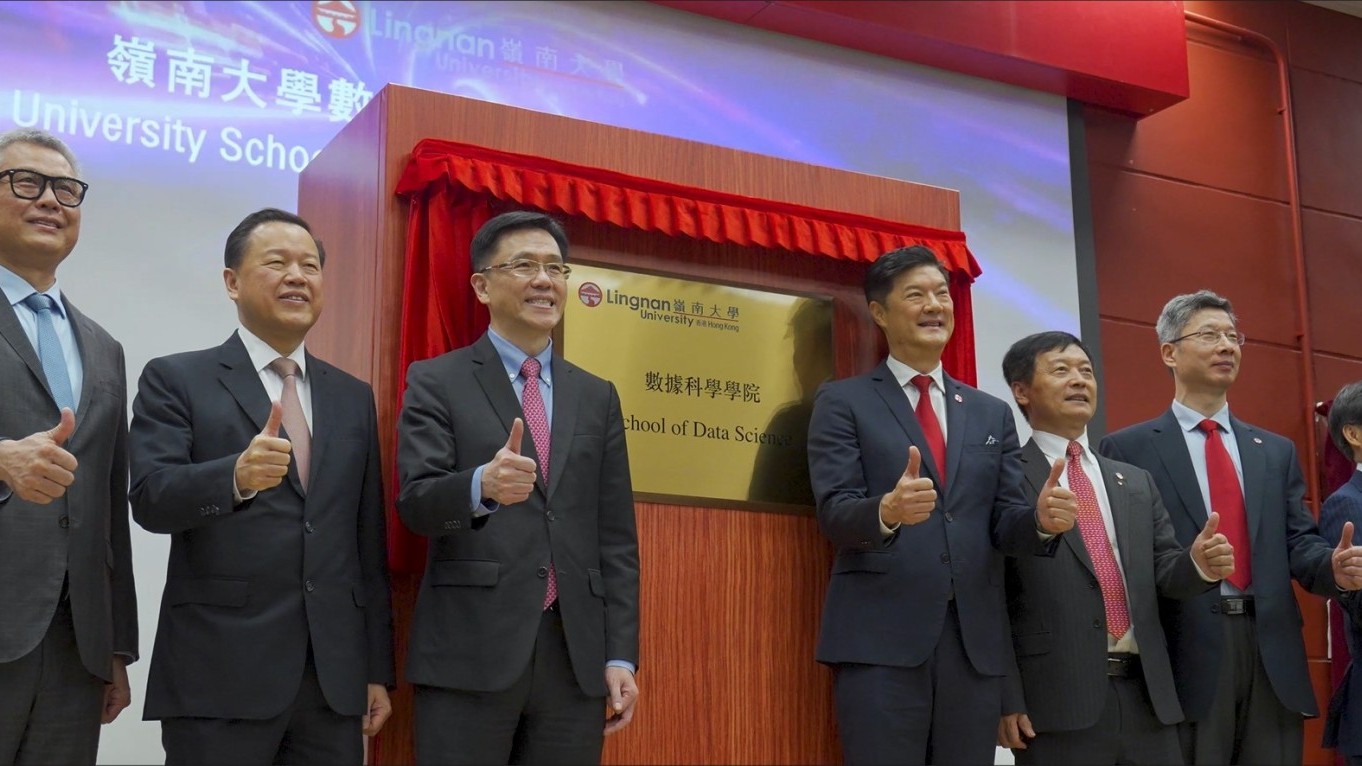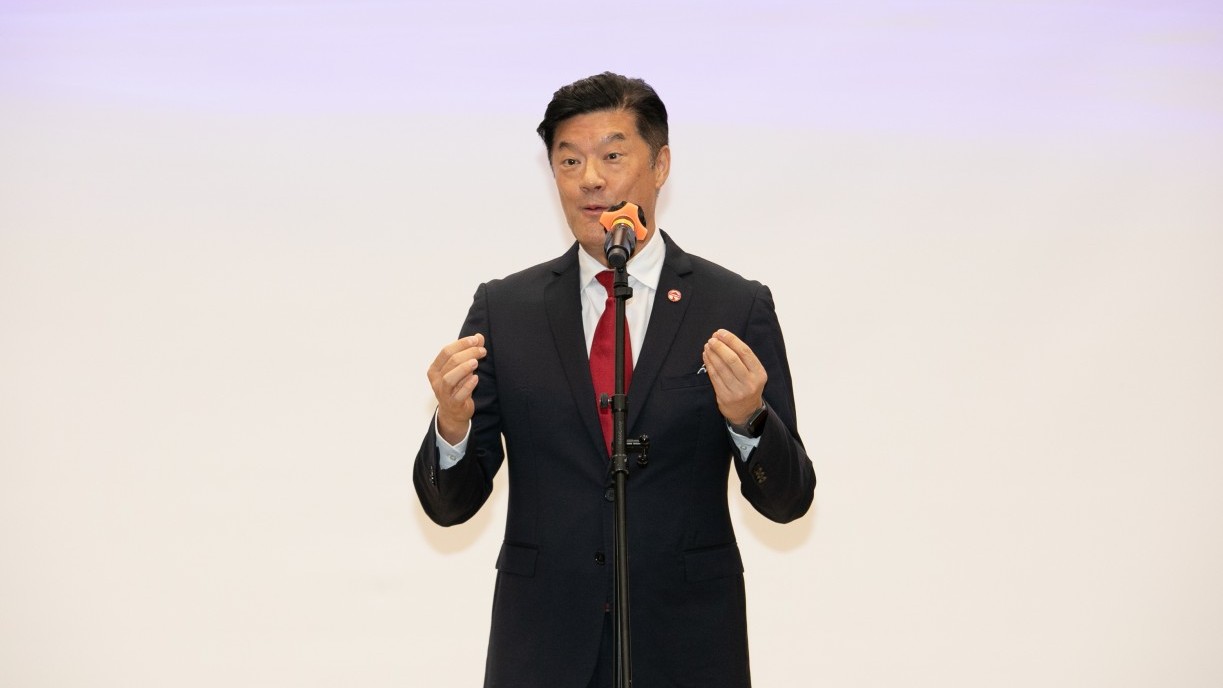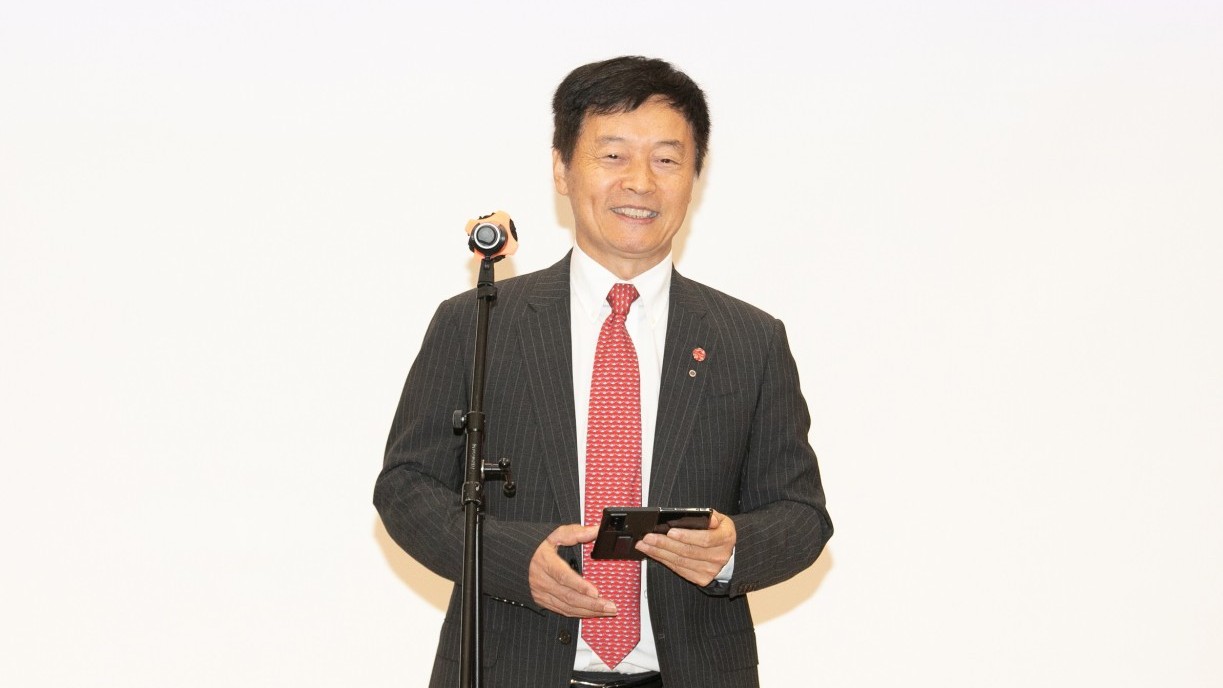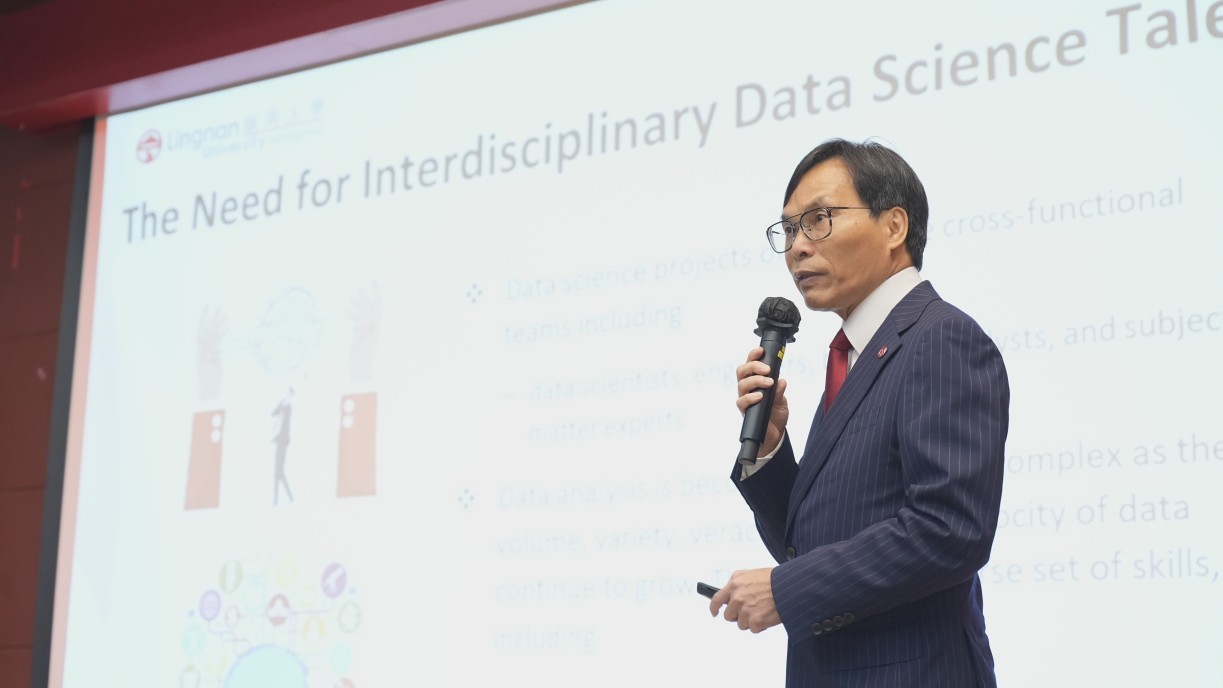Lingnan University hosts establishment ceremony for the School of Data Science to cultivate well-rounded AI and data scientists
Lingnan University announced on 2 May 2024 the establishment of the School of Data Science (SDS), and held a plaque-unveiling ceremony officiated by Prof Dong Sun, Secretary for Innovation, Technology and Industry, Mr Tim Lui Tim-leung, Chairman of the University Grants Committee (UGC), Dr Rocky Cheng Chung-ngam, CEO of Cyberport, Mr Augustine Lui Ngok-che, Chairman of the Lingnan Education Organization, Mr Andrew Yao Cho-fai, Council Chairman of Lingnan University, and Prof S. Joe Qin, President and Wai Kee Kau Chair Professor of Data Science.
Following the Faculty of Arts, Faculty of Business, Faculty of Social Sciences, School of Interdisciplinary Studies, and School of Graduate Studies, the School of Data Science is the sixth school established by Lingnan University. It is composed of three divisions: the Division of Artificial Intelligence (DAI), the Division of Industrial Data Science (DIDS), and the LEO Dr David P. Chan Institute of Data Science (LEODCIDS), and offers a wide range of high-quality programmes ranging from bachelor’s degree to PhD.

Lingnan University announces the establishment of the School of Data Science. Prof Dong Sun, Secretary for Innovation, Technology and Industry (fourth from left), Mr Tim Lui Tim-leung, Chairman of the University Grants Committee (UGC) (third from left), Dr Rocky Cheng Chung-ngam, CEO of Cyberport (second left), Mr Augustine Lui Ngok-che, Chairman of Lingnan Education Organization (left), Council Chairman Mr Andrew Yao Cho-fai (fourth from right), President Prof S. Joe Qin (third from right), Vice-President (Research and Innovation) Prof Xin Yao (second right), and Acting Dean of the School of Data Science and Associate Vice-President (Strategic Research) Prof Sam Kwong Tak-wu (right) unveil the plaque for the School of Data Science.
Focusing on first-class interdisciplinary education and training, research, and industry partnerships, the SDS offers a comprehensive curriculum covering fundamental principles and essential skills such as programming, statistics, and machine learning. The curriculum is designed to meet dynamic market needs by providing interdisciplinary hands-on experience and project-based learning that applies skills to real-world datasets, along with strong engagement with organisations through internships and networking opportunities for students. The SDS will also promote collaborative, cross-disciplinary research projects that leverage data science, analytics, machine learning, and AI expertise to address critical challenges in diverse domains.
The School of Data Science offers programmes including the existing LEO Dr David P. Chan Bachelor of Science (Hons) in Data Science (BScDS), Master of Science in Artificial Intelligence and Business Analytics (MScAIBA), Master of Science in Data Science (MScDS). MPhil/PhD in Data Science will be launched in the 2024/25 academic year.
The University will be introducing two new programmes in the 2025/26 academic year, the Master of Science in Industrial Data Analytics (MScIDA) and the Master of Science in Smart City Technologies and Applications (MScSCTA). The MScIDA programme will develop expertise in analysing large-scale industrial datasets for process optimisation, predictive maintenance, and quality control. The MScSCTA programme will provide students with a comprehensive understanding of smart city concepts and technologies as well as their implementation in areas such as transportation, energy, and government services.
